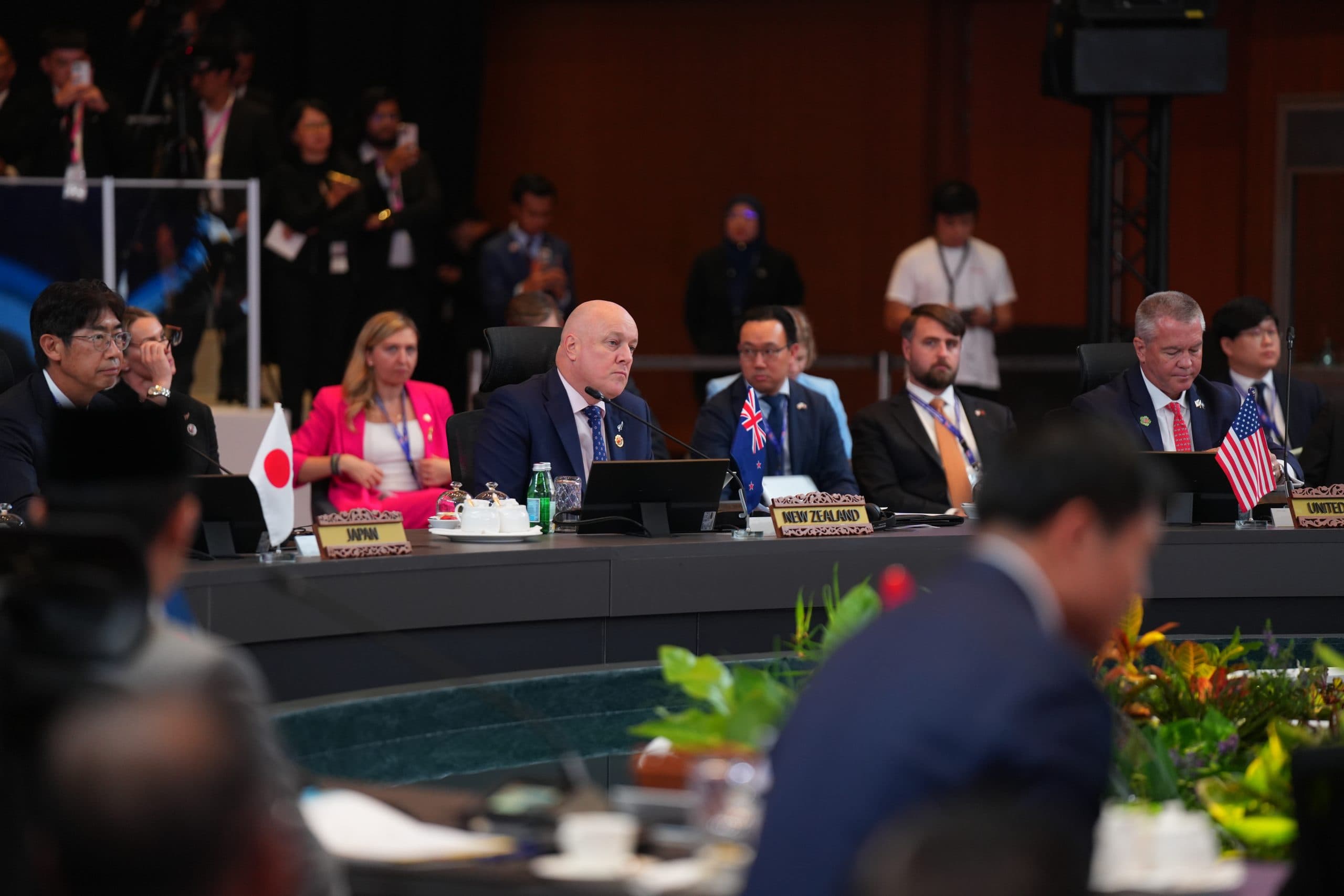They may no longer be the tallest buildings in the world, or even in Malaysia, but the Petronas Towers still loom large on Kuala Lumpur’s skyline.
The twin skyscrapers tower over the Kuala Lumpur Convention Centre, the venue for this week’s Asean-related summits, making them unavoidable for anyone taking part in the proceedings.
They make a rather apt backdrop, not just for their aesthetic merits but the extent to which two other giants – the United States and China – are looming over discussions.
With the US hitting Southeast Asian nations with some of its most punitive tariffs, and China engaged in a number of territorial disputes in the region, many countries have expressed anxiety about being forced to pick a side.
Heading into the summits, Malaysian foreign minister Mohamad Hasan warned the bloc was at a crossroads in an international landscape “increasingly dominated by contestation rather than consensus”.
“Our space for neutrality and centrality is narrowing, particularly in areas such as trade, technology and regional security arrangement. We must continue to act as the speakers and not the spoken for.”
The sentiment was echoed by Malaysian Prime Minister Anwar Ibrahim in his own opening address to the East Asia Summit, as Prime Minister Christopher Luxon and other regional leaders watched on.
“We’ll continue to advocate for dialogue over coercion, balance over binaries, cooperation over confrontation. We affirm our stand on global peace and security, for multilateralism and international law,” Anwar said.
It was music to Luxon’s ears, who in his own remarks to the summit advocated for the rules-based system and regional peace – “as I’ve done consistently and pretty stridently”, he told media at the end of Monday.
But with Chinese President Xi Jinping skipping this year’s summit (Premier Li Qiang attended in his place) it was one of multilateralism’s most ardent critics – US President Donald Trump – who dominated much of the media coverage, despite being on the ground for barely 24 hours.
After a brief dance on the tarmac after he arrived on Air Force One, Trump was quickly down to business, announcing reciprocal trade deals with Malaysia and Cambodia and ‘framework agreements’ with Thailand and Vietnam.
Like some of the president’s other deals, the latest agreements do not come cheap for the other side: the state-owned Malaysia Aviation Group, which runs Malaysia Airlines and other subsidiaries, is obliged to buy at least 30 American-made Boeing aircraft, and Malaysian oil and gas giant Petronas will take 3 million tonnes of US liquefied natural gas a year.
Trump also oversaw the signing of what he labelled a “peace accord” between Cambodia and Thailand following a months-long border crisis that led to the deaths of dozens and the displacement of nearly 300,000 civilians. Thailand has been less definitive about the outcome of the agreement, with foreign minister Sihasak Phuangketkeow labelling it a “pathway to peace”.
Perhaps buoyed by the suite of deals he inked, Trump opted for flattery over belligerence in his remarks to Asean leaders, telling them: “You are spectacular leaders. You are incredible people. Your energy, your genius, your – everything you do, I say it truly, everything you touch turns to gold.”

Yet the sentiment is not entirely reciprocated by the Malaysian public, with many angry about US support of Israel over its war in Gaza: as Luxon’s motorcade made its way to the summit venue on Sunday, he may have noticed a group of protesters brandishing Palestinian flags and a giant cardboard cut-out of Trump’s head.
Luxon is pursuing his own art of the deal, albeit on a far smaller scale, as he tries to shore up the New Zealand economy and diversify trade beyond the US and China.
“If you’re sitting in New Zealand, a country of five and a half million people, where one in four of our jobs are ultimately tied to trade, and you’re looking out into the region, this is the part of the world that you want to be based in,” the Prime Minister said, expressing hope that New Zealand would this week become one of just seven countries to have a comprehensive strategic partnership with the Asean bloc.
To that end, Luxon continued his charm offensive with a series of brief bilateral meetings – essentially speed dating for world leaders – with the prime ministers of Cambodia, Laos, Thailand and Vietnam, as well as Indian external affairs minister S. Jaishankar.
Schools of suited diplomats flitted from conference room to conference room, making sure the appropriate flags and translation headsets were in place and providing constant updates about the whereabouts of their leader (someone joked they should create an Uber-style app for Luxon that would allow the delegation to track his movements).
Trump’s fleeting time in Malaysia left no time for a meeting with Luxon, and it remains unclear whether the pair will sit down at the Apec summit in South Korea this week: “If it happens, it happens – if it doesn’t, it doesn’t,” the Prime Minister said fatalistically.
What is clear is that there is no meaningful prospect of any Trump-Luxon ‘trade deal’, not while New Zealand’s tariff still sits at the lowest level for any country in a trade surplus with the US.
But Luxon – along with Southeast Asian leaders – will be praying for a positive outcome when Trump and Xi meet on the sidelines of Apec, given the indirect but significant effects of trade ructions between the superpowers.
“We’ve got the two largest economies in the world that are worth trillions of dollars … it’s in their mutual interest to make sure that they do have an accommodation, that they can work together.”
Such an outcome is beyond New Zealand’s control – meaning insurance in the form of strengthened trade and diplomatic ties with groupings like Asean takes on added importance.

